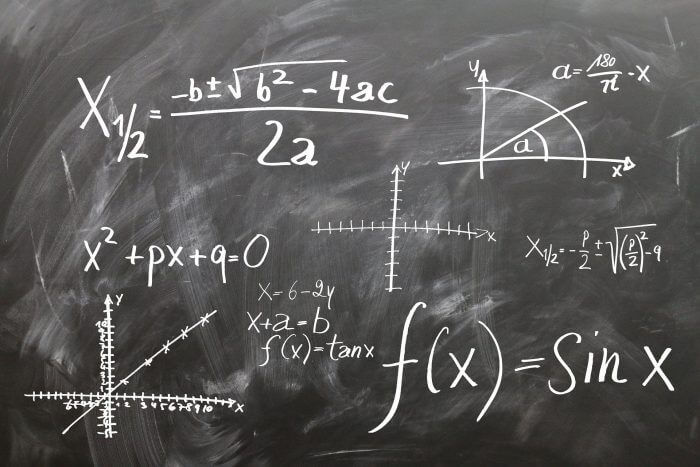15 Interesting Mathematics Research Paper Topics and Ideas
Mathematics includes the study of such topics as quantity, structure, space, and change. It has no generally accepted definition.
Mathematicians seek and use patterns to formulate new conjectures; they resolve the truth or falsity of conjectures by mathematical proof. We have developed a list of interesting mathematics research paper topics as follows:
1. Developing a Mathematical Memory Game for Children using colour association principles.
Sub-Research: The effect of colour on children’s cognitive performance.
Discuss: In this study, children’s emotional associations with colours will be investigated. We find a significant difference in performance across colours, with significantly worse performance in the presence of red than grey. The effect of colour did not significantly interact with the task.
2. Critical Analysis of the Factorial Validity of the Attitudes towards Mathematics Inventory (ATMI) in Nigeria.
Discuss: The purpose of this study is to examine the psychometric properties of the Attitudes towards Mathematics Inventory (ATMI) utilized in Nigeria and make recommendations.
3. Examining the Psychometric Properties of an inventory to determine the factors that affect students’ attitudes toward mathematics
Discuss: This study will examine the reliability and validity of the inventory that measures attitudes toward mathematics among secondary school students in Nigeria. Case Study: Lagos State.
4. Controllability and Observability of Linear Dynamic Systems; Observability matrix of High Number of States
Discuss: This study is a modification of well-known controllability and observability tests using Lyapunov equations and Gramians yields a reliable tool for controllability and observability testing for linear continuous and discrete-time systems, as well as an alternative procedure to determine controllable, observable and minimal system realizations.
5. Developing Micro-Elastohydrodynamic Lubrication Techniques for Coated Cylinders Utilizing the Coupled Differential Deflection Method
Discuss: This Study will analyse a numerical solution for the micro-elastohydrodynamic lubrication (EHL) problem of two coated elastic bodies in line contact. This will incorporate the non-Newtonian behaviour of the lubricant, using an Eyring-type non-linear viscous model.
6. Evaluating Existing Techniques for Brain Tumour Growth Identification
Discuss: This Study will anaylsis the different techniques utilized in brain tumour identification and provide evidence supporting the best technique.
7. Evaluating Techniques for Regionalisation of Lagos with respect to Floods in terms of Mathematical Modelling
Discuss: This study will anaylsis mathematical techniques to aid in partitioning, redevelopment and city planning of Lagos state to account for floods.
8. Developing a Vehicle Guidance System using Vision-Based Road Lane Detection
Discuss: A vision system using onboard camera looking outwards from the windshield is presented in this paper. The system acquires the front view using a camera mounted on the vehicle and detects the lanes by applying a few processes.
9. Study on the Mathematical Mind; Evaluating the mechanics of thinking mathematically
Discuss: This Study will analyse the problem-solving, metacognition and sense-making in mathematics and mathematical education.
10. Understanding the metacognitive pedagogies in Mathematics Classrooms
Discuss: This study will analyse the way the human mind’s understanding of mathematics develops from Kindergarten to college and beyond.
11. The Walker’s Guide to Anomalous Diffusion; Using Fractional Dynamics
Discuss: This study aims to understand the process of transportations processes in crowded environments, developing investigative tracking techniques for law enforcement.
12. A Critical Review of Beer’s Law; Understanding the Index of Refraction and its relationship with Linear Concentration
Discuss: Beer’s empiric law states that absorbance is linearly proportional to the concentration. Based on electromagnetic theory, an approximately linear dependence can only be confirmed for comparably weak oscillators.
13. A Critical Review of Absorption and Extinction Coefficient Theory
Discuss: The velocity of propagation of an electromagnetic wave through a solid is given by the frequency-dependent complex refractive index N = n – ik where the real part, n is related to the velocity, and k, the extinction coefficient is related to the decay, or damping of the oscillation amplitude of the incident electric field. The optical properties of the solid are therefore governed by the interaction between the solid and the electric field of the electromagnetic wave.
If a plane wave of frequency (f) propagates through a solid with velocity (v) in a direction defined by (x), the electric field (E) is described by the following progressive wave equation:

Where, (E0) is the incident electric field vector and;

is the displacement at time t after a disturbance, created by the electric field at a point situated at x along the line of propagation?
14. Understanding the Closed-form formula of Riemann Zeta function and its relationship with complex functions using the Riemann hypothesis
Discuss: This study will analysis an explicit identity of sums of powers of complex functions presented via this a closed-form formula of Riemann zeta function produced at any given non-zero complex numbers with the aim of proving that among those zeros some of them are zeros of Riemann hypothesis.
15. (Medical Mathematics) Understanding and Developing Mathematical Models to Counter Sickle Cell Disease
Discuss: This Study will Analyse the Mathematical Modelling of Erythrocyte Chimerism that develops genetic intervention strategies for Sickle Cell Disease. (Medical Mathematics)

